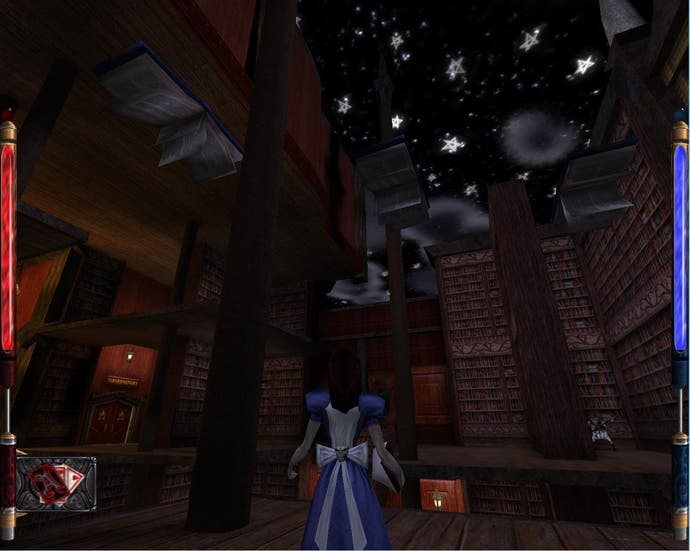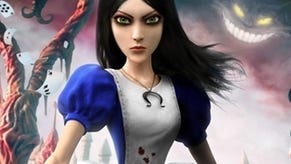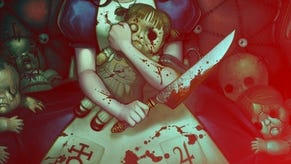Retrospective: American McGee's Alice
Cat and mouselook.
By far the most significant character you meet in your journey though is the Cheshire Cat. Right into beta, his original role was more than just a companion and guide to Alice, acting as an additional summoned fighting force. The removal of this role was the right decision in the face of temptation - maintaining this character as a mischievous observer rather than a tool of destruction is more in keeping with his merely curious nature. While the acting ranges from acceptable to lacklustre, Roger Jackson shines through as the Cat. Think Hannibal Lecter meets Alan Rickman with an eye for the ladies. "When is a croquet mallet like a Billy club? Whenever you want it to be."
Alice herself remains true to the original character. Haughty, demanding, plummy and impatient, her interactions with the characters of Wonderland are just as you'd expect from your familiarity with the books and films. Brooking no nonsense, she scolds and demands her way through the game.

Graphically the game takes a broad stroke approach to rendering the rich and colourful environments of Alice's psyche. Objects and buildings are sharply angular, night sky vistas are peppered with pentagrams rather than stars and the contents of buildings leer towards you. While it's a simplistic yet bold design style that will be immediately recognisable to players of World of Warcraft, it's also not afraid to change tack entirely, taking a clever sidestep into crisp black and white to match a later level's chess theme.
The soundtrack is understated and all the more unnerving for it, providing a suitable background to Alice's descent into madness. Ticking clocks and slow atonal glockenspiel riffs join together in a mechanical, maniacal atmosphere. Equally chilling are the sound effects, which range from burbling children with screws attached to their heads to the shrieks of airborne banshees that freeze Alice to the spot.
What cracks there are in the looking glass only become apparent as you reach the second quarter of the game. The mechanics of Alice's movement are difficult to convey without hands-on experience but are tantamount to taking off like a rocket before floating back to earth, all within the timing of a heartbeat.
This control method is easily compensated for in the earlier levels of the game but, as the difficulty of the platform sections in particular increase, so do the opportunities for frustration and mistakes that feel beyond the player's control. An on-rails section through a river level sees you leaping across lily textures that lack a clearly defined landing platform. Mis-jumps here are frequent, slides are unpredictable and your gaming instincts are tested more by judicious use of the quick-save button than navigation of the level itself.
Taken in isolation, a section like this would have been a tolerable grind among so many well-designed levels, were it not immediately followed by that other mainstay of late-nineties gaming, the underwater level. In addition to the usual race against breath, enemies to the rear do their best to dispatch you while the scenery ahead collapses, killing you instantly on contact. This sort of thing breaches the contract of trust that has to exist between designers and players; that you will always be challenged but never feel cheated.
It's an unfortunate case of a designer's ambition punching too far above the weight of a game's technical implementation - from these two sections alone, I accumulated more savegames than the rest of my playtime put together. The platform components of Alice are instead put to far better use in the mischievous puzzles that litter Wonderland - the use of mirrors to determine which platforms are real and which are deceptions, for example.
There's more than one devil in American McGee's Alice, then. But as an ambitious re-imagining of a cherished world it's a success. With the sequel slated for release at some point in 2011, we should only look forward to whatever slice of his devilish imagination McGee chooses to serve up for us.




